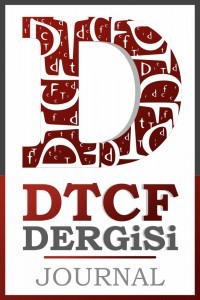DAVID HUME VE IMMANUEL KANT’IN KESİN BİLGİ ANLAYIŞI
Bu makalede, bir ampirist filozof David Hume ile bir rasyonalist filozof Immanuel Kant’ın kısaca kesin bilgi anlayışları ve çıkmazları söz konusu edilecek ve yeri geldikçe karşılaştırılacaktır. Hume, bilindiği üzere, klasik İngiliz felsefesinin John Locke ve George Berkeley’den sonraki temsilcisidir. O, kendisinden önce gelen bütün filozofların sistemlerini yıkıp, deneye dayalı ‘insan doğası bilimi’ kurmaya çalışmış ve bu uğurda “İnsan Doğası Üzerine Bir İnceleme” adlı eserini yazmıştır.O, esasında, insan zihninin bilgisi üzerinde durmuştur. Özellikle, nedensellik kavramına ilişkin çalışmalarıyla Kant’ı dogmatik uykusundan uyandıran Hume, bilimin ve felsefenin yönünü değiştirmiş ve ele aldığı problemleri çözüm tarzlarıyla felsefe tarihinde kendisine apayrı bir yer edinmiştir. İnsan aklına son derece önem veren, aklın doğuştan muhtevalı bilgilerle donatılmış olduğuna inanan, 18.yy Alman Aydınlanma filozofu Immanuel Kant da aklı kendisine inceleme konusu yapmıştır. Bunun sonucunda “Salt Aklın Kritiği”, “Pratik Aklın Kritiği” ve “Reflexionlu Aklın Kritiği” adlı eserlerini kaleme alarak bilime, felsefeye, özellikle metafiziğe, ahlaka ve san’ata yeni ufuklar açmıştır.
Anahtar Kelimeler:
Kesin Bilgi, Nedensellik, A Priori, A Posteriori, Analitik, Sentetik, Sentetik A Priori, Transandantal
In this article, it will be briefly comprehended one empiricist philosopher David Hume’s and one rationalist philosopher Immanuel Kant’s exact understanding of knowledge and aporiae will be examined and they will be compared as necessary. As it is known, Hume is the representative of classical English philosophy after John Locke and George Berkeley. He destroyed the systems of all philosophers who preceded him, tried to establish a “science of human nature” based on experiments and wrote “A Treatise of Human Nature” to this end. In fact, he dwelled on the knowledge of the human mind. Hume, who awakened Kant from his dogmatic slumbers with his works on the concept of causality, changed the direction of science and philosophy and attained a completely different place in the history of philosophy with his style of solving problems. Kant, an 18th Century Enlightenment Philosopher, who considered the human mind to be very important and who believed that the mind is equipped with contained knowledge from birth, also made the mind his subject of examination. As a result, he wrote the “Critique of Pure Reason”, the “Critique of Practical Reason” and the “Critique of Reason with Reflections” and opened new horizons for philosophy, and especially for metaphysics, ethics and art.
Keywords:
Exact Knowledge, Causality, A Priori, A Posteriori, Analytic, Synthetic, Synthetic A Priori, Transcendental,
___
- AKARSU, Bedia. (1963). “Kant’ta Zaman-Mekân Kavramları”. Felsefe Arkivi. 14, 109-122.
- ALLISON, H.,E.(1983) Kant’s Transcendental Idealism: An Interpretation and Defense. London: Yale University Press.
- AUNE, B. (1970) Rationalism, Empricism and Pragmatism: An Introduction. NewYork: Random House.
- BATUHAN, Hüseyin. (1959). “Hume’un Bilim Felsefesi”. Felsefe Arkivi. 4 (2), 121-133.
- GOLDMANN, Lucien. (1973). The Philosophy of the Enlightenment. (Çev. Henry Mass). Great Britain: Routledge and Kegan Paul Ltd.
- GOLDMANN, Lucien. (1983). Kant Felsefesine Giriş. (Çev.Afşar Timuçin). İstanbul: Gözlem Mtb.
- HEIMSOETH, Heinz. (1967). Immanuel Kant’ın Felsefesi. (Çev.Takiyettin Mengüşoğlu). İstanbul: İstanbul Mtb.
- HUME, David. (1952) An Enquiry Concerning Human Understanding. Great Books of the Western World, Encylopediae Britannica Inc.,Chicago, London, Toronto.
- HUME, David. (1975). An Enquiry Concerning Human Understanding. (Çev. Oruç Aruoba). Ankara: Hacettepe Üniversitesi Yayınları.
- HUME, David. (1964). The Philosophical Works.. C.I-IV.. Darmstadt. Scientia Verlag Aalen.
- KANT, Immanuel. (1952). The Critique of Pure Reason. Great Books of the Western World, Encylopediae Britannica Inc. Chicago, London, Toronto.
- KANT, Immanuel. (1983). An Answer to the Question: What is Enlightment?. (Çev.T. Humphrey). Cambridge.
- MAGEE, Bryan. (2001). Büyük Filozoflar: Platon’dan Wittgenstein’a Batı Felsefesi. (Çev.Ahmet Cevizci). İstanbul: Paradigma Yayınları.
- POPKIN, Richard. (1970). “Bayle and Hume”, Felsefe Arkivi.17, 19-38.
- SCRUTON, R. (1984). A Short History of Modern Philosophy: From Descartes to Wittgenstein. London.
- TÜRKER, Mübahat. (1956). Üç Tehâfüt Bakımından Felsefe ve Din Münasebeti. (Doktora Tezi). Ankara: Türk Tarih Kurumu Yayınları.
- WEBER, Alfred. (1964). Felsefe Tarihi. (Çev.Vehbi Eralp). İstanbul: Yayınları.
- WEST, David. (1998). Kıta Avrupası Felsefesine Giriş: Rousseau, Kant, Hegel’den Foucalt ve Derrida’ya. (Çev. Ahmet Cevizci), İstanbul: Paradigma Yayınları.
- YENİŞEHİRLİOĞLU, Şahin. (1982). Felsefe Diyalektik Bilgi Kuramı (Epistemoloji). (Doçentlik Tezi). Ankara: Ankara Üniversitesi Dil ve Tarih Coğrafya Fakültesi Yayınları.
- YILDIRIM, Mustafa. (1990). David Hume’da Din, Bilgi, Ahlâk Problemi. (Basılmamış Doktora Tezi). Erzurum.
- Yayın Aralığı: Yılda 2 Sayı
- Başlangıç: 1942
- Yayıncı: Ankara Üniversitesi
Sayıdaki Diğer Makaleler
BILDUNGSROMAN TRADITION IN KING HORN
DAVID HUME VE IMMANUEL KANT’IN KESİN BİLGİ ANLAYIŞI
AURORA LEİGH’DE TÜRSEL BİRLEŞİM VE MELEZLİK
KAYSERİ-ARGINCIK HAYDAR BEY KÖŞKÜ
MACAR EPİK ŞİİR GELENEĞİNİN KÖKENLERİ
ESKİ YAKINDOĞU’DA RAHİP VE RAHİBE TASVİRLERİ
